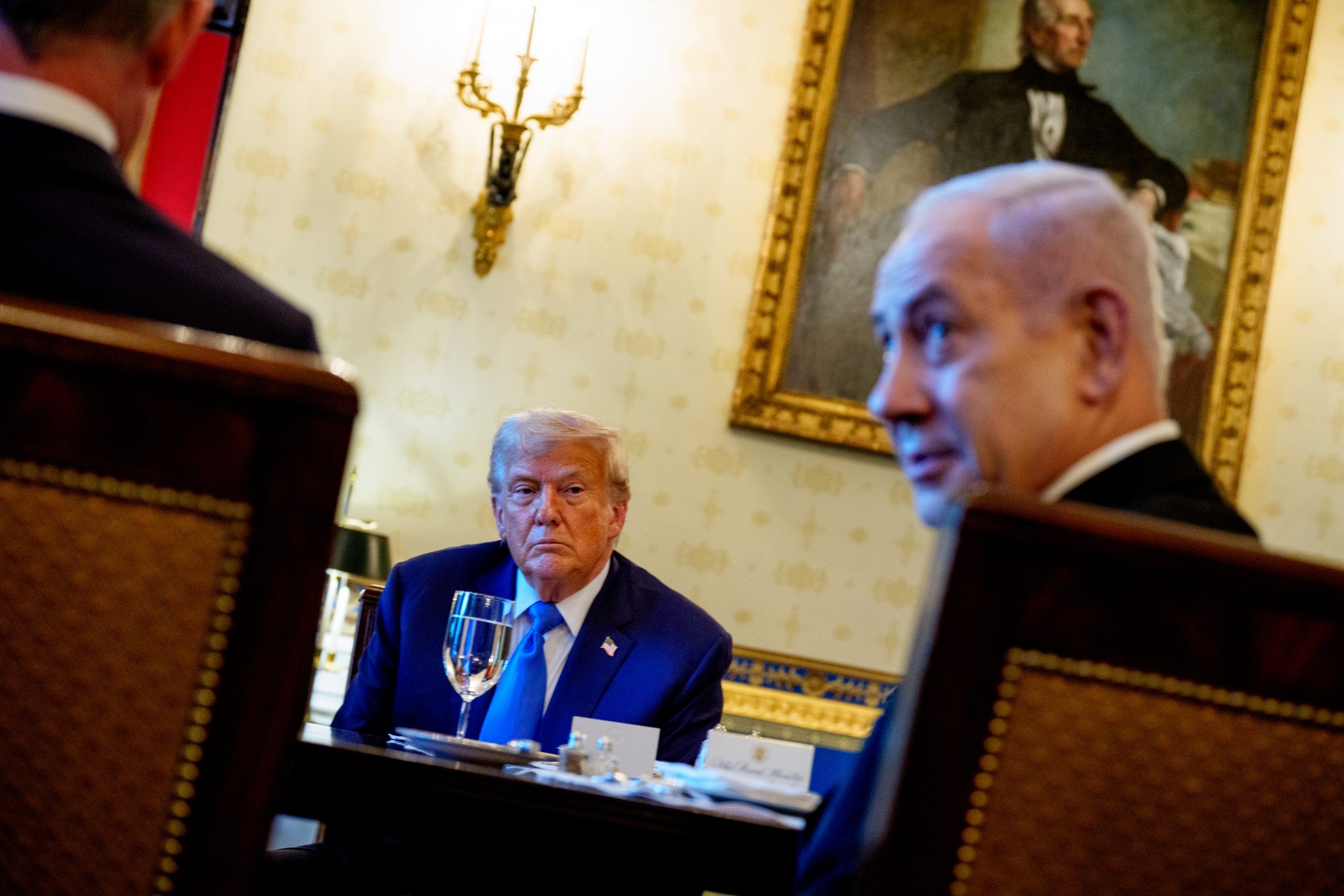Israeli Prime Minister Benjamin Netanyahu on Monday backed a proposal by President Donald Trump to relocate Palestinians from Gaza and turn the war-ravaged coastal enclave into a luxury waterfront development—a plan that has drawn international condemnation and could further complicate fragile cease-fire talks between Israel and Hamas.
[time-brightcove not-tgx=”true”]
“It’s called free choice,” Netanyahu told reporters before a private dinner with the President in the White House. “If people want to stay, they can stay. But if they want to leave, they should be able to leave.”
Netanyahu added that Israel was working “very closely” with the United States to identify countries that would be willing to accept displaced Palestinians from Gaza, and suggested that discussions with several nations were already “getting close” to fruition.
Trump, seated across from the Israeli leader, said that “we’ve had great cooperation” from countries surrounding Israel and added that “something good will happen.”
Netanyahu’s comments marked the most explicit endorsement yet of a controversial idea Trump first floated earlier this year: that Gaza could be emptied of its Palestinian population and redeveloped into what he once called the “Riviera of the Middle East.” The proposal was met with quick backlash from U.S. allies, Arab leaders, and human rights organizations, who said it amounted to ethnic cleansing under the guise of economic development. The White House later attempted to walk back elements of Trump’s language.
But Netanyahu’s renewed support for the vision—paired with his insistence on rejecting the creation of a Palestinian state—offers a stark preview of the kind of “peace” he and Trump may ultimately seek: one in which the Palestinian population is displaced or resettled abroad.
It also represents a sharp break from decades of U.S. policy, which has long held that the path toward peace in the Middle East must include a two-state solution—an independent Palestinian state existing alongside Israel. Netanyahu made clear that any peace deal to end the war with Hamas should not include the recognition of a Palestinian state.
“I think the Palestinians should have all the powers to govern themselves, but none of the powers to threaten us,” Netanyahu said. “And that means that certain powers like overall security will always remain in our hands.”
“We’ll work out a peace with our Palestinian neighbors, those who don’t want to destroy us,” he added, “and we’ll work out a peace in which our security, the sovereign power of security, always remains in our hands. Now, people will say, ‘It’s not a complete state, it’s not a state. It’s not that — we don’t care.”
Read more: Experts Break Down the Biggest Roadblocks to the Israel-Hamas Cease-Fire Negotiations
Negotiators will meet in Doha later this week for cease-fire and hostage talks. Though Trump has said he believes a deal could be reached “during the coming week,” Netanyahu’s endorsement of mass relocation could deepen mistrust among Palestinian negotiators and potentially derail progress.
“It shouldn’t be a prison,” Netanyahu said of Gaza, which had a pre-war population of 2 million. “It should be an open place.”
The war in Gaza, now in its 21st month, began after Hamas launched a terror attack on October 7, 2023, killing some 1,200 people and taking more than 250 hostages. Since then, Israel’s military campaign has killed over 57,000 Palestinians, according to Gaza health officials, and displaced more than 80% of the population. U.N. agencies warn that half a million people face imminent famine.
The Prime Minister’s remarks echoed a growing sentiment within his far-right coalition, where calls to permanently remove Palestinians from Gaza have become more open in recent months.
Read more: Netanyahu Will Get a Warmer Welcome in Washington than he Would in Israel
The private dinner capped a day of closed-door diplomacy for Netanyahu, who also met earlier with Secretary of State Marco Rubio and Trump’s foreign envoy Steve Witkoff. Netanyahu is scheduled to meet with House Speaker Mike Johnson on Tuesday. The two leaders appeared to use the dinner to take a victory lap after the United States and Israel carried out coordinated airstrikes on Iran’s nuclear facilities last month. Before taking questions from reporters, Netanyahu said that he had nominated Trump for a Nobel Peace Prize.

